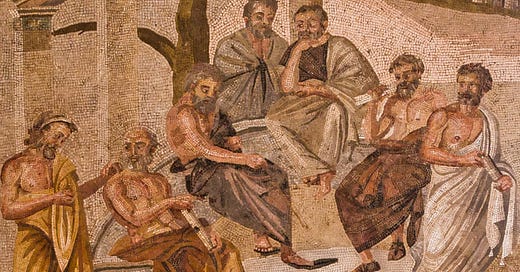In the last of these posts, I detailed ten of the most fundamental ideas I’ve been shaped by—largely with respect to God, the world, and the human being, which is one of those fundamental triads in my thinking to which I return again and again. Here’s ten more, but these are mainly about what is sometimes called fundamental theology, with respect specifically to how I understand the so-called depositum fidei, the “deposit of faith,” or sources of theology: experience, reason, tradition, and scripture.
Experience is the root of reason, tradition, and scripture, in that order. This is a very intentional reframing of what is sometimes called the Anglican Trilateral (when it lacks “experience”) or the Methodist quadrilateral (including experience), but I am here saying that the law of theological method is discernible by reference to the theory of religious development itself. To the point: humans are constituted by experiences. Some of those experiences are individual, some of them are collective. The vast majority of them are ordinary. But some are extraordinary, “super,” and altered in character: some are epiphanic, theophanic, laophanic, or topophanic revealing fundamental truths about reality, the personality of gods, or the numinous character of a people or place. In these episodes, humans experience something that transcends the rational, but then which has to be processed rationally, through the use of ideas, concepts, images, names, and words to communicate what has been experienced. Those experiences then get communicated to other people via ongoing access to the sacred (oracles, prophecy), rituals (cult), stories (myth), art and architecture, and sometimes also discursive teachings, oral and written (scripture). All of those methods of communication are subject to the changes inherent in their reception and reworking by new generations—including scripture, which is added to, edited, collated, transmitted, curated, and canonized by communities across generations. So theology, which interprets those streams of transmission, must begin from experience, rationally interpreted, traditionally shared, and scripturally expressed. Only then does the theologian return from the scriptural nadir to the experiential zenith of encounter with the divine.
Keep reading with a 7-day free trial
Subscribe to A Perennial Digression to keep reading this post and get 7 days of free access to the full post archives.




